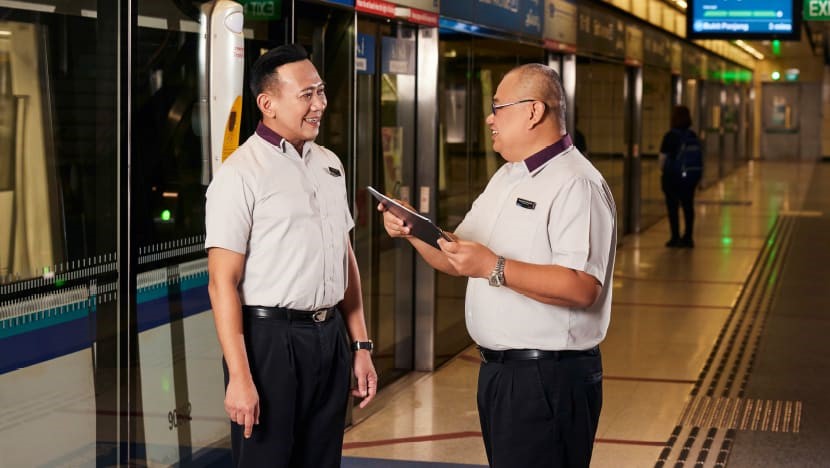Flexible work arrangements – To do more or not to do
- HRM Asia Newsroom

The recent announcement of the tripartite guidelines on flexible work arrangement (FWA) requests in Singapore has garnered generally positive responses from employees and employers alike. Detractors on either side of the camp, however, say it does not go far beyond or it puts employers on the defensive. Regardless, the guidelines are a step towards greater flexibility, which truth be told, already exists if we do not focus just on flexible location or working from home. Many employers provide some form of FWAs in terms of flexible load / time working arrangements; some more formalised than others.
In the government’s articulation of the rationale for the guidelines, it emphasised the twin impact of slowing resident workforce growth and growing caregiving needs with an aging population, leading to more employees having to juggle work and care-giving responsibilities. More extensive adoption of FWAs will help caregivers manage their dual responsibilities and attract caregivers and seniors to return to or remain in the workforce. Some employers, of course, point to the nature of their work which does not avail itself easily to FWAs, and not just working from home per se. As a public transport operator (PTO), SBS Transit could have taken that stand and do the minimum to satisfy the intent of the guidelines. After all, the bulk of our workforce is needed either on the front line or the shop floor.
 “We believe that FWAs can truly help create a more diverse workplace and workforce, and given that we support the public transport system, this will allow us to better provide safe, secure and reliable bus and rail services for everyone.” – Don Leow, CHRO of SBS Transit Group.
“We believe that FWAs can truly help create a more diverse workplace and workforce, and given that we support the public transport system, this will allow us to better provide safe, secure and reliable bus and rail services for everyone.” – Don Leow, CHRO of SBS Transit Group.
Our bus captains have to drive the buses, which today do not drive themselves, or at least not yet. Operations staff man our bus interchanges and rail stations. Engineering staff perform maintenance in workshops to keep our buses and trains in good condition. And while our Northeast and Downtown lines are fully automated, they still need customer service officers to look after commuters, deal with incidents and take over the driving of the train during an emergency.
But the fact is, these employees have access to a range of flexible load / time working arrangements today. Locals who become bus captains, for example, can choose to work part-time or 6 / 5 / 4-day workweeks and ask for permanent morning / afternoon shifts. They will soon have personalised work rosters which accommodate individual preferences based on one’s work-life needs. The only thing our bus captains cannot do is drive from home, but even that may be a possibility someday.
Our quest to do more than the minimum even before the guidelines were issued also stems from our responses to structural challenges like low birth rates and rising educational aspirations of locals, which means having to compete for a smaller but better qualified local manpower pool. To do that, we are reprofiling our manpower structure to elevate job roles so that our headcount requirements are lower, but our people undertake higher level work.
Today, we take on a large proportion of ITE graduates to support operations and engineering divisions across our bus and rail businesses. With rising educational aspirations, many of them will move on to become diploma or degree holders. In our transformation, we are redesigning the roles performed by ITE graduates to cater for diploma holders and above, with the base layer of work reduced or automated through greater use of technology and Gen AI.
With this, we hope to continue to attract locals and be able to offer the whole range of FWA options to them, including working from home. For operations staff, if we can man bus interchanges and rail stations remotely, either during some times of the day or certain days of the week, then the work can sometimes be done from home. For those in engineering roles taking on higher level work which involves data analytics, they can potentially work from home one to two days per week. The advent of electric buses, with rail systems already sophisticated in nature, will further support this future of work.
If what we envisage comes to pass, it will unlock greater diversity, equity and inclusivity in our workplace. As a company, we have a 3E (Employ, Empower and Educate) framework to recruit persons with disabilities (PwDs), in addition to supporting them indirectly by procuring goods and services from social enterprises and social service agencies which employ them. With more extensive FWAs from the continual push of the aforementioned transformation efforts, we will also be in a better position to take a higher number of PwDs, as more of the operations and engineering work can be done from home.
We are not just supportive of Forward SG’s and Enabling Masterplan 2030’s goal to create a more inclusive society for PwDs in Singapore. It is part and parcel of our workforce strategy to enhance inclusiveness in SBS Transit while building a more diversified pipeline of talent and manpower to support the public transport system.
Of course, doing more on the FWA front will also help us to attract more females to join the company and industry. With lower participation rate in the economy than their male counterparts, this resource pool is smaller but allowing for more options in flexible location / load / time will make our work more attractive to females, who also tend to be care-givers.
READ MORE: Flexible work crucial for working parents in Singapore to thrive
Likewise, we hope to bring in more seniors into the industry since we are living longer and healthier, and some of them prefer to continue being productive than to stop working altogether. We are mindful that they may want a different tempo compared to their pre-retirement days, hence there are various part-time schemes (either working part of the day or part of the week) to meet the most varied of needs. For those who want to work full-time, there are other FWA options they can consider. At the end of the day, FWAs ensure that PwDs, caregivers and seniors have equal opportunities in career options and advancement.
We believe that FWAs can truly help create a more diverse workplace and workforce, and given that we support the public transport system, this will allow us to better provide safe, secure and reliable bus and rail services for everyone. So, for SBS Transit, the answer is affirmative in that we want to do more than just the minimum in implementing the Tripartite Guidelines!
About the author: Don Leow is CHRO of SBS Transit Group. Join him at CHRO Singapore 2024 on September 18, where he will be part of a panel discussion that explores the dynamics of a multigenerational workforce.






